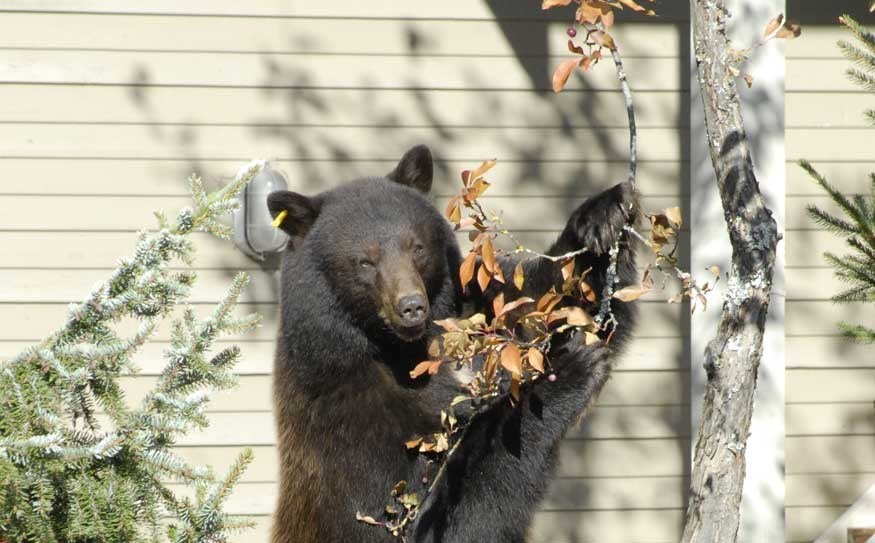When it comes to keeping Whistler's bears safe this fall, home and garden is the place to start.
No bears have yet been killed within Whistler's boundaries in recent weeks, but this is the time when conflicts can kick off because hibernation preparation brings bears to where the easiest-to-reach food is found.
"It's the time of year when bears are going to start to come off the alpine and into the valley, and causing some conflict," said Whistler's conservation officer, Tim Schumacher.
The BC Conservation service wants the public to stop planting trees and shrubs that draw bears to residential areas.
"Mountain ash berries and other berry producing trees and shrubs in Whistler are an issue for bears and for public safety," Schumacher said.
In the fall, as food sources deplete at higher elevations, bears move down the Whistler Valley to seek calories for hibernation. At this time of year they need up to 20,000 calories a day in order to bulk up.
Mountain ash berries and other berry trees, while a natural food source for bears, have also been taken up by gardeners as an ornamental native plant, tempting the animals into backyards and gardens.
"They are a natural tree that grows up in the alpine, but landscaping companies and residents will plant them in their yards. They produce a red and orange berry in clusters, conflict can happen when people plant them in yards, in pedestrian traffic areas, next to entryways and children's playgrounds.
"One past incident we had in 2010 was a sow and cub, which were feeding on a mountain ash in a group of trees at a residential complex, and the bears significantly damaged the trees while they were up there. They became comfortable around humans in that complex, and the sow began to defend the food source by bluff charging people going to and from their homes," Schumacher said.
The trees eventually had to be removed, he added.
Residents are asked to:
•Plant trees or shrubs that don't produce berries;
•Remove berries on existing trees by picking them and pruning the trees;
•Replacing such trees that are already there with non-berry trees; and
•Keeping all other bear attractants, like food and garbage, away from bears.
Schumacher also wanted to point out that approaching bears for photos or even just allowing them to remain in yards leads bears to become used to humans, placing them and you in danger.
"Bears that become comfortable around human homes leads to the sort of behaviour that means bears must be destroyed," he said.
Schumacher said the fine for leaving out attractants is $230 under the Wildlife Act.
"We try to use education at all costs, but some people don't listen. We need some level of enforcement to get the message across," Schumacher said.
All bear sightings within Whistler must be phoned into the conservation officer service hotline at 1-877-952-RAPP. This line can also be used to report poachers or polluters.




